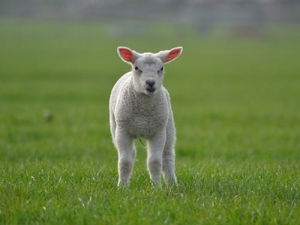NZ Catchment Groups Thrive with ‘Source to Sea’ Approach
The most successful catchment groups in NZ are those that have 'a source to sea' approach.
 A North Island trial comparing the value of lambs sired by low versus high genetic merit rams validates that using genetic data does pay off.
A North Island trial comparing the value of lambs sired by low versus high genetic merit rams validates that using genetic data does pay off.
A North Island trial comparing the value of lambs sired by low versus high genetic merit rams validates that using genetic data does pay off.
The "Data Drives Dollars" trial ran this season and aimed to find out if genetic selection information – specifically, EBVs (estimated Breeding Values) – worked and if there was a financial gain from using rams with high genetic merit, or not.
It was a joint project between Massey University and red meat genetics company Focus Genetics, supported by Beef + Lamb New Zealand Genetics. The trail was run at Mt Hebert Station in Waipukurau and Taratahi's Glenside Station in Gladstone.
Trial results showed lambs sired by rams with higher genetic merit were 0.7kg heavier at weaning – which was worth an average of $1.69 more per lamb, compared to those with lower EBVs.
Focus Genetics sheep and deer programme manager Dr. Richard Lee said the results show that EBVs work in delivering a signifcant production outcome which increases dollars returned.
"For an average farmer, based on the schedule of $5.85 on 12 November 2015, this would have increased returns by over $2000 per farm per year, and if taken across the industry could add significantly to New Zealand export returns," says Lee.
"We now have evidence here in New Zealand that proves rams with higher genetic merit do produce heavier lambs which increases farmer returns.
"It is now up to the industry and individual farmers to decide if the commercial advantage is worth it.".
The two farmers of the commercial properties which ran the trial, Simon Wilson of Mt Hebert Station and Reuben McClean, manager of Taratahi's Glenside Station, said the trial confirmed for them that EBVs work.
Wilson says: "This has demonstrated to me that there is a real and direct commercial gain from selecting rams with high EBVs."
McClean says the evidence showed that the two properties with different feeding regimes and climates had both seen the benefit from the rams with higher EBVs.
"The results of this trial should give farmers confidence in knowing that when buying rams, those with higher proven genetic merit for growth will grow bigger lambs," McClean says.
The results also took the 50-farmer strong working group by surprise when the heaviest and "best" looking ram they picked produced the lightest lambs, and the ram no-one even looked at came out tops with his lambs at 2kg ahead.
Wilson says no one can see genetics.
"None of us picked him at the beginning or at the end of the trial."
McClean says just because a ram might be the best looking one in the paddock, it doesn't mean he will deliver the biggest lambs.
Dr Lee says whether this study will now influence a significant change in farmers buying lambs on EBVs alone only time will tell.
"All the farmers who volunteered their time to be part of the working group were highly engaged throughout the trial, they sought robust answers and kept us under the spotlight," Dr Lee says.
The Data Drives Dollars trial took two teams of rams of both high and low genetic merit mated to 500 mixed-aged ewes on each farm.
The rams were selected based on estimated breeding values (EBV's) for live weight at eight months of age, and compared their progeny's live weight up to four weeks after weaning.
The ewes and their lambs were managed so that the only on farm variable was the sire 'team' of the rams on each farm throughout the trial.
Average farm example
Based on a 3000 ewe self-replacing flock with 30% of ewes (1000) put to a high EBV terminal sire, where all input costs are the same.
At 120% lambing producing 1200 terminal sired lambs to slaughter, current schedule at the time of $5.85 12 November 12 2015 it would return $2028 more at $1.69 per lamb average.
The Meat Industry Association of New Zealand (MIA) today announced that Chief Executive Officer Sirma Karapeeva has resigned from the role.
The winners of the 2026 Hawke’s Bay/Wairarapa Dairy Industry Awards were announced at the annual awards dinner held at Copthorne Solway Park in Masterton on Thursday evening.
Environment Southland is welcoming this week’s decision by the Environmental Protection Authority (EPA) to approve the release of Blaptea elguetai, a leaf‑feeding beetle that will help control the highly invasive Chilean flame creeper.
This March, the potato industry is proudly celebrating International Women’s Day on 8 March alongside the International Year of the Woman Farmer, recognising the vital role women play across every part of the sector — from paddocks and packhouses to research, leadership, and innovation.
Fruit trader Seeka posted a record profit and returns to shareholders in 2025.
Recent weather events in the Bay of Plenty, Gisborne/Tairawhiti, and Canterbury have been declared a medium-scale adverse event.

OPINION: A mate of yours truly reckons rural Manawatu families are the latest to suffer under what he calls the…
OPINION: If old Winston Peters thinks building trade relations with new nations, such as India, isn't a necessary investment in…